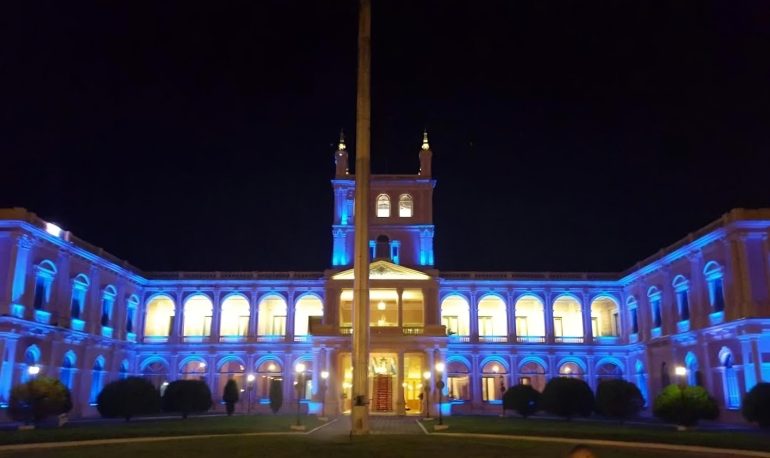Public buildings across Paraguay are being illuminated in blue to mark World Day Against Human Trafficking. The campaign, which runs from July 21 to 31, 2025, is led by the Ministry of Women, and aims to raise awareness and prevent further victims of this crime.
Each year on July 30, the world commemorates the United Nations World Day Against Human Trafficking with symbolic acts raising awareness and promoting prevention of this transnational crime. The crime affects men, women, and children globally.
Victims of human trafficking
Human trafficking is a serious issue where individuals are misled or taken advantage of, often through false promises, and end up in situations where they are unfairly treated. Those responsible, might deceive people with offers of jobs or better lives, but instead, they take away their freedom. This can involve taking their passports, leaving them trapped. Perpetrators force victims to work in harsh conditions, or coerce them into other forms of exploitation.
The positive side is that there is a global movement to tackle this. The World Day Against Human Trafficking highlights the issue, focusing on supporting survivors and raising awareness. Organisations, communities, and ordinary people collaborate to protect those at risk, help victims rebuild their lives, and promote fairness and respect. Global efforts help building a world that values everyone’s rights and dignity.
24-hour SOS hotline
International trafficking is usually easier to detect, however, internal trafficking, between regions or departments within a country, can remain hidden for extended periods. The Ministry of Women seeks to alert women to suspicious job offers, lacking prior verification or other warning signs. Support is available for victims through the 24-hour SOS hotline 137, or (021) 497 815, Monday to Friday, 7 AM to 3 PM.
International efforts
Paraguay’s Ministry of Foreign Affairs established an Inter-institutional Committee to tackle this international crime. The Ministry coordinates the effort with 17 other public institutions and bi-national entities.


